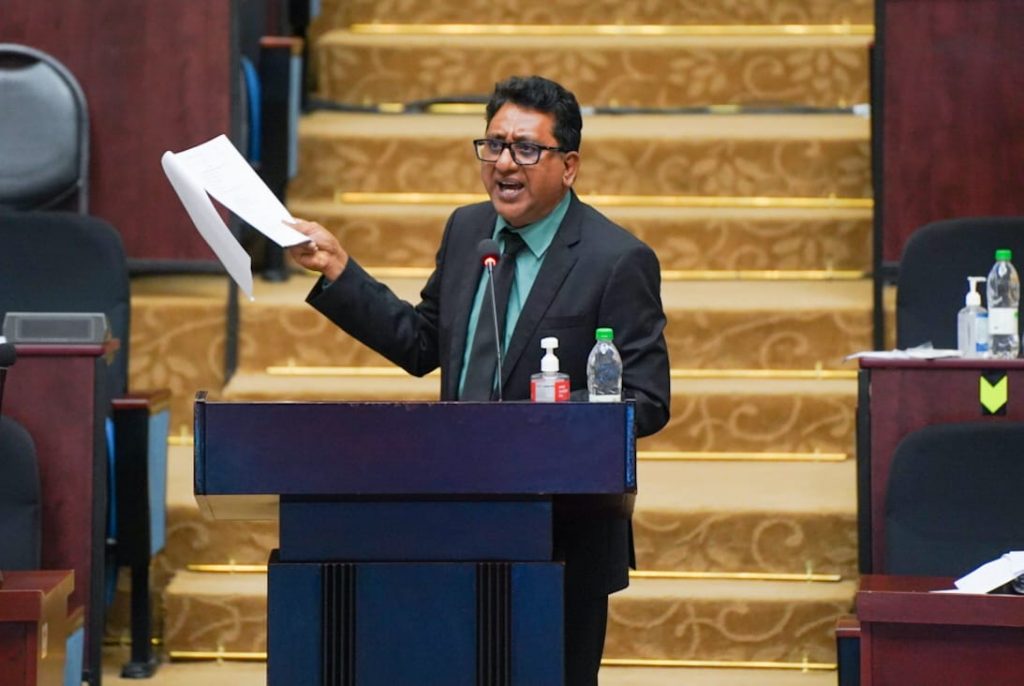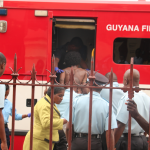
The Criminal Law (Procedure) Amendment Bill was unanimously passed by the National Assembly on Monday.
The updated legislation strips the Director of Public Prosecutions (DPP) of the power to direct a Magistrate to reopen a case after that case might have been dismissed.
The DPP had the powers to direct a Magistrate to have an accused committed to stand trial in the High Court. However, under the amended legislation, the DPP must now apply to the High Court for the case to be reopened.
With the passage of the Bill, Section 72 of the Principal Act has been deleted, and a new Section 72 has been incorporated into the legislation, according to Attorney General Anil Nandlall.
“If the DPP is aggrieved by a decision of the magistrate, who discharges the accused person at the conclusion of a PI, within three months, the DPP must make this application to a judge in chambers,” the Attorney General explained.
It was noted that once a request to reopen a case reaches a Judge, it is that Judge who can approve or reject the application by the DPP.
The amendment is in keeping with the March 2022 decision of the Caribbean Court of Justice (CCJ) in the Marcus Bisram vs the DPP case.
Attorney General Anil Nandlall explained that in the Marcus Bisram case, the presiding Magistrate found that a prima facie case had not been made out against the murder accused, thereby dismissing the case.
But using her powers under the original legislation, DPP Shalimar Ali-Hack, directed the Magistrate to reopen the preliminary inquiry and to commit the accused to stand trial before the High Court.

Bisram challenged the decision of the DPP right up to the CCJ on the basis the move was unconstitutional, and had undermined the independence of the judiciary.
The CCJ agreed with the arguments from Bisram’s Attorneys.
“It is hereby declared that Section 72 of the Criminal Law (Procedure) Act violates the separation of powers and is also inconsistent with Article 122 (A) and Article 144 of the Constitution. The CCJ went on to make the following pronouncement, and I quote ‘until the National Assembly makes suitable provisions, Section 72 is modified to excise those provisions permitting the DPP to direct the magistrate. In lieu thereof, a DPP aggrieved at the discharge of an accused person by a magistrate after the whole of the proceedings at a PI may apply ex parte to a judge of the supreme court for an order for the discharge person be arrested and committed, If the judge is of the view that the materials placed before the judge justifies such a course of action,” the Attorney General explained while alluding to the decision of the CCJ.
He told the National Assembly that Guyana was bound to abide by the ruling of its apex Court.
The bill received the support of the Opposition.
APNU+AFC Member of Parliament, Khemraj Ramjattan said the move to overhaul that section of the legislation to reduce the powers of the DPP and place it in the hands of a Judge, is a step in the right direction.
“The judiciary in the sense of judges being given the power now to ensure that they deal with this matter of prima facie case rather than the DPP, I think is putting it and residing it in the proper place, and I total agree too that it should not be ex parte. There is a natural justice principle that should remain for the accused in any serious matter, where imprisonment and even hanging are the penalties, that they should be given that right to be heard. So, although there may be a little variation from that which was suggested by the CCJ, I believe that variation is commendable in the form that it was taken here,” MP Ramjattan told the House.
With the Amendment Bill passed, it will become law when the President assents to it.
















You must be logged in to post a comment Login